Dodano do koszyka
Sprawdź również
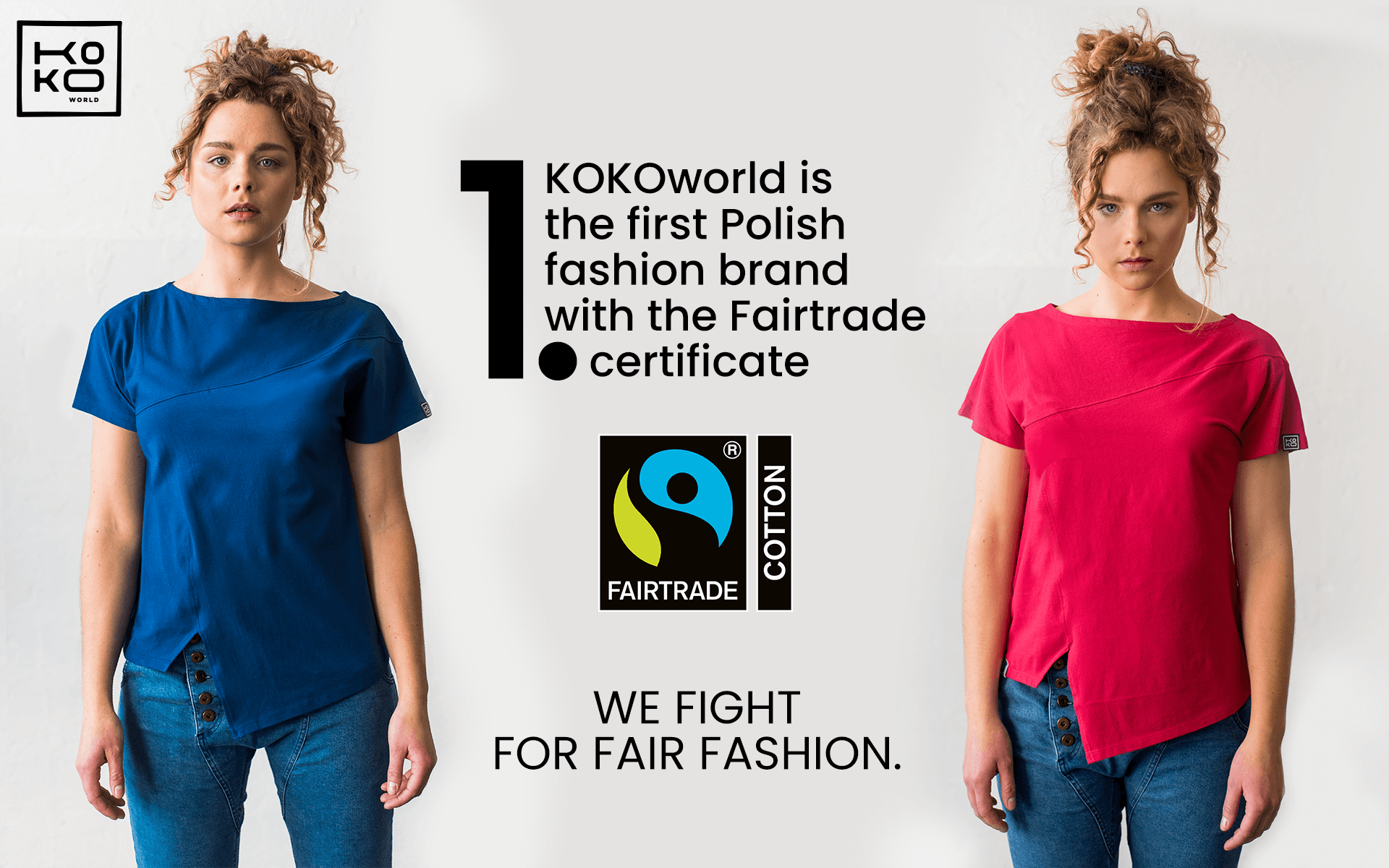
Weare done! When will we, as a society, finally learn that there is nomore room for take-and-give? We already know too much to justifywrong decisions by lack of information. Let's get to work and startacting. Simplyspeaking - we either buy fair clothes or we buy nothing at all!
Weare proud to announce that from this year, as the first fashion brandin Poland, we have the Fairtrade certificate. In the text below weexplain why the certificate is the milestone when it comes tofighting for environmental protection and human rights in the fashionindustry.
Threestories, three scenarios and millions of people who livethat scenariosevery single day. Why is it so? Is it because of social injusticerooted in... well, that is the question – in what? Lack ofinformation? We have access to it! Colonialism? It was overthrownover half a century ago! Or is it perhaps constant drive to have newthings? Let's have a look at our own decisions and choices thatdefinehow social (in) justice works.
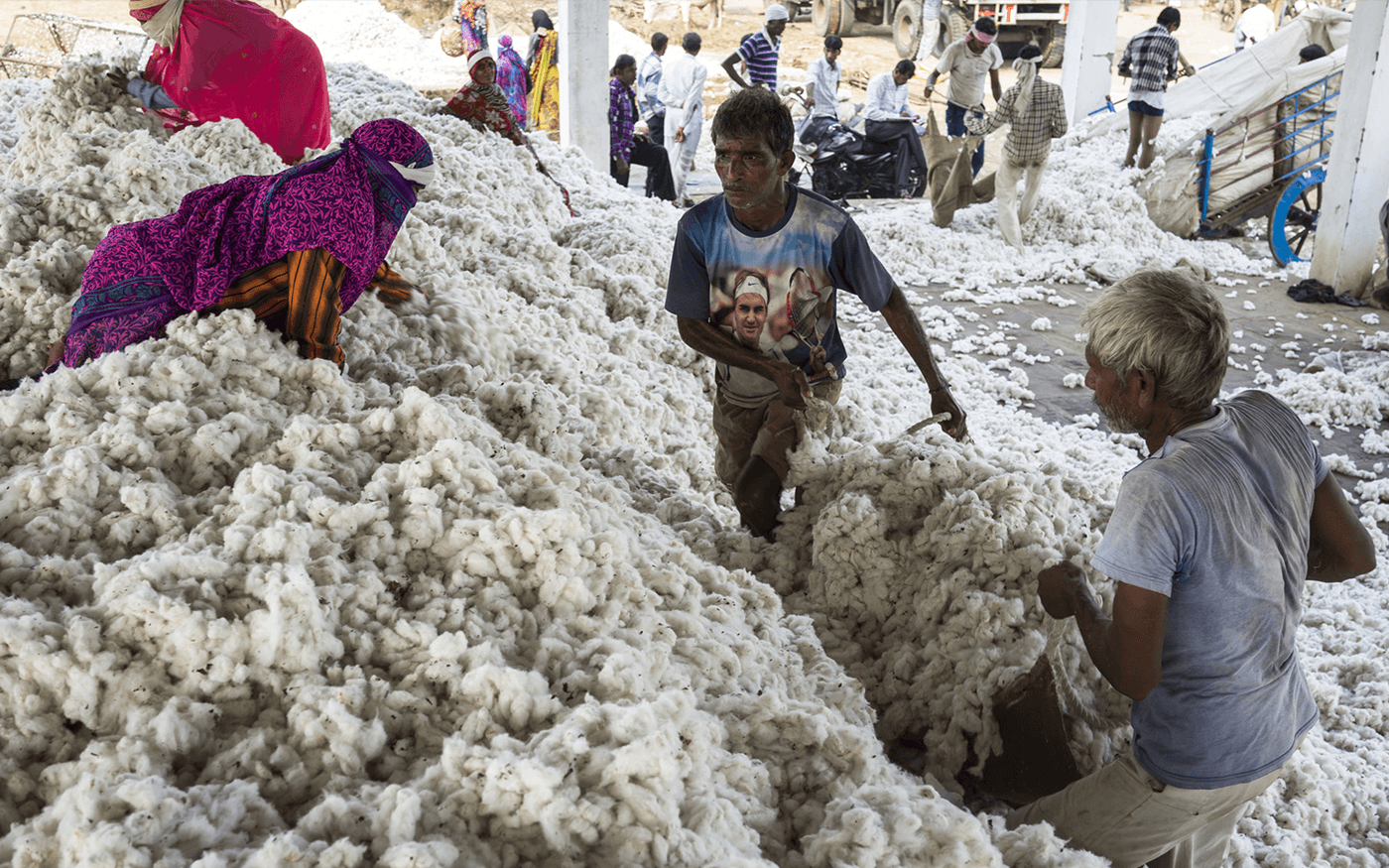
FairTrade represents the idea of fostering the development of the GlobalSouth countries by trade that is based on special rules (much morefavorable for farmers and workers than those prevailing on theinternational market). This is possible thanks to three values:
1.fair price for products,
2.fair wages and decent social conditions for employees,
3.transparency, honesty and respect in business relations.
Theappropriate certificates are used to distinguish products rootedinthese values. One of them is the Fairtrade certificate. It is thelabeling system created by Fairtrade International, awarded toproducts that have successfully passed the audit of an independentorganization controlling product producing standards. These standardsare verified within the Fair Trade Organization certificationsystems.
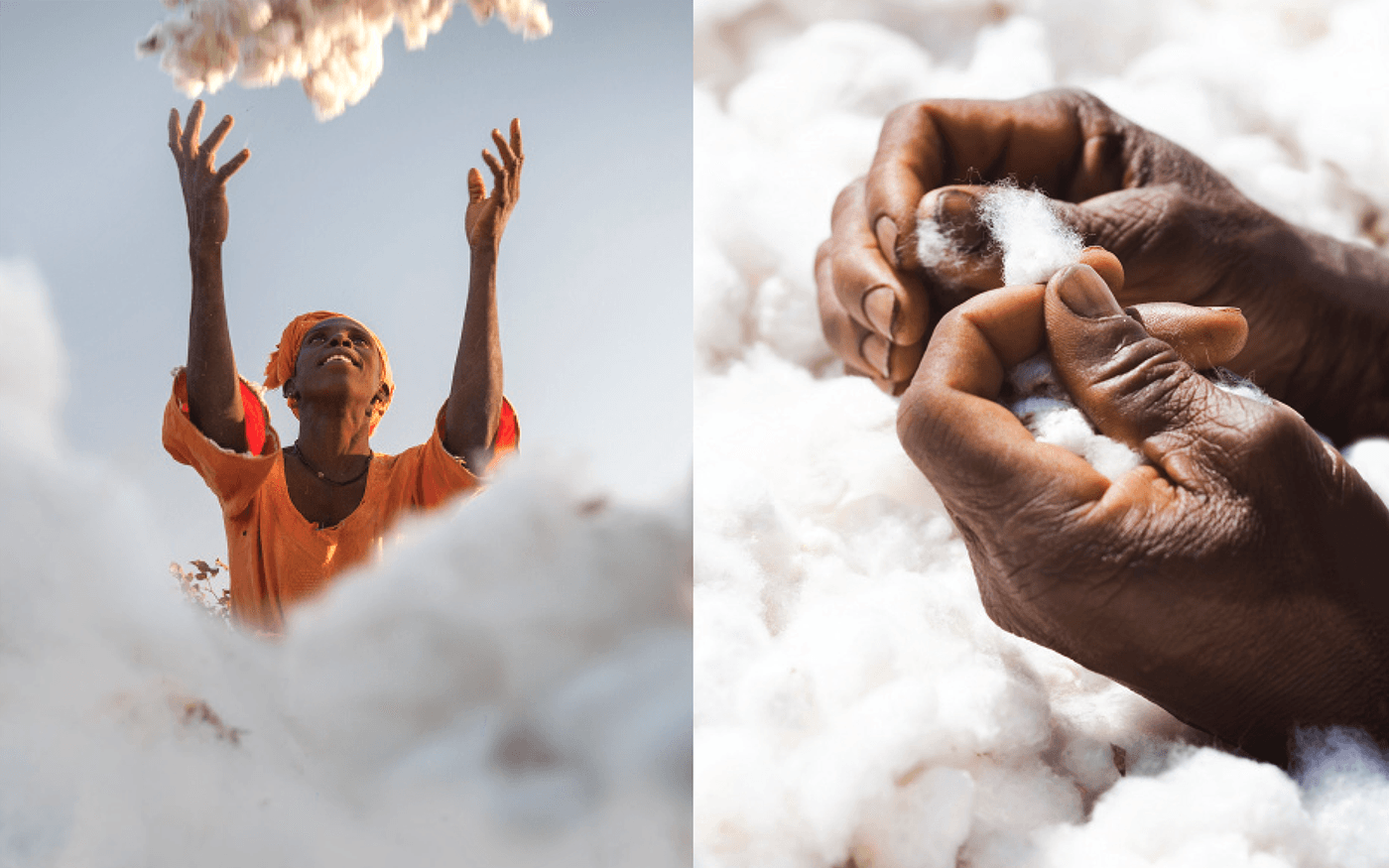
Eachproduct with the Fairtrade label (regardless of whether it is food,clothing or accessory) brings significantchanges to people creating it on every stage of its production:farmers, drivers, seamstresses.
Fairtrademakes sealing trade deals on a fair basis easier. Farmers organizedina cooperative have a minimum price for their crops guaranteed. Whatdoes it mean? If the price of the raw material (cotton, coffee,fruit, etc.) suddenly drops below the Fairtrade rate, farmers arepaid a fixed minimum price anyway, and when the market price ishigher than the minimum price, then farmers are paid the marketprice1.Why are stable prices so important? Nothing new: a sense of security(including economic security) is one of the most comfortable states ahuman beings can find themselves in. It is essentialfor healthy growth.On top of it, fixed and stable prices make it possible to cover thecosts of sustainable production and protect producers from pricefluctuations on the market. Farmers who get together in cooperativeshave also a stronger position in negotiations with raw materialsbuyers – together they are stronger and can achieve much favorablecooperation conditions. An important element of the economic sideof Fair Trade isalso Fairtrade Premium – allocated for the implementation of projects that contribute to socialdevelopment (supporting education and health care in the localcommunity – such bonuseswere paid to farmers, for example, during the COVID-19 epidemic),improvement of production efficiency (purchasing new machines) orprotection of the ecosystem (tree planting). It is important tomention that the decision on what the premiumwill be spent to is made democratically by farmers.
Forcedlabour and child labour2are strictly prohibited under Fairtrade standards. Fairtrade alsofights with discrimination – the stark reality is that in manycountries women still do not receive directly the money they earn –wages go to men who are related to them. In Fair Trade certifiedcooperatives, women's voice is just as important as voice of theirmale colleagues, they are paid the same wagesand takeleadershippositions. Another important area regulated by the certificate issafety of working conditions in cotton processing plants and sewingrooms3.Compliance with health and safety rules and employee rights ismonitored at every stage of the supply chain.
Thethird area covered by Fairtrade certification is environmentalprotection. Fair Trade organizations advocatefarmers on sustainablewater managing, storing waste and caring for the soil fertility.Example? Fairtrade cotton is watered with rain4– this reduces the water footprint in the region. The use of plantprotection products and fertilizers is strictly controlled. In placesextremelyvaluable for the local biodiversity, farmers are obliged to preserve(and contribute to increasing) it. Importantly – these are notstandards appliedin a thoughtless way. Farmers can also count on Fairtrade supportwhile implementing solutions – they can participate in trainings onhow to produce natural fertilizers5,fight pests or limit the negative impact of climate change on crops6.
“Thereare currently around 45000 farmers in the Fairtrade system groving Fairtrade cotton,three-quarters of them live in India. Thanks to Fairtrade, livingconditions of these farmers and their families have been improving.Fairtrade proves that the fashion industry can be ethical foreveryone. In the current pandemic situation, showing solidarity withfarmers and employees is more important than ever." -Fairtrade Poland.
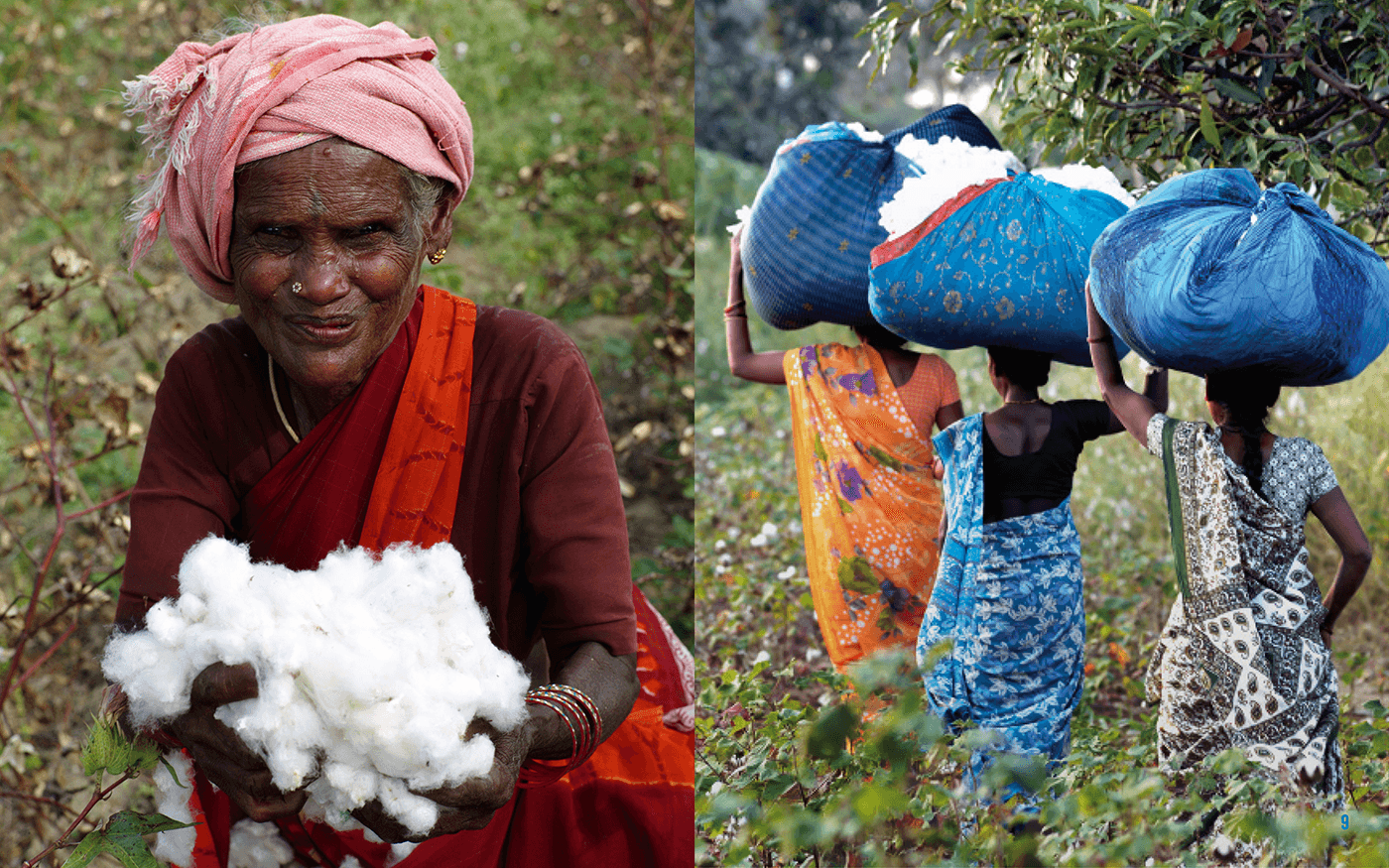
Itwas 2018 when KOKOworld started efforts towards the Fairtradecertificate. These two years of intensive application processappeared also to be milestones time for our brand. They have led usto a place from which we can confidently say that one of our biggestdreams is coming true. Why? Because we are sure that the productslabeled with the Fairtrade logo (our products!) were created in thefairest and the most ecological way possible,moreover – these standards were applied at every stage of theirproduction – from the cotton crops, through ginning, yarn andfabric production, to projects sewing and finishing them. Not onlyour clothes do no harm – but they also create an opportunity fordevelopment and improvement of living conditions. They show thatchange is possible and it depends on us!
What was crucial while applying for the cetificate?
Consideringthe fact that only few Polish companies are Fairtrade certified, wehad to walk the path on our own – without hints and support from"industry friends"7.It came to our great surprise to discover that none of sewingworkshops in Poland will be able to be awarded with the certificate.Therefore we faced the challenge to find a certified Fairtrade sewingworkshop, which was far from being a piece of cake – there are overa dozen of them in the whole world! Luckily, we tied up businesscontact with the Reacher Apparels from India. Quoting, mock sewingsand finally agreeing on business conditions – everything took ustwo years. On top of it, we had to answer a number of questions toFairtrade International and set up a special account to report theproducts sale and to deduct the percentage from the Fairtradeproducts sale. It was also necessary to verify all our labels –both paper and cotton ones.
Why is the Fairtrade certificate so important (not just for me)?
Nowthat you know that a lot depends on you, have a look on the power ofyour choice to buy a Fairtrade product. Buying certified products...
• Youcontribute to endpoverty – the Fairtrade Premium is mostlyspent on innovating and improving production efficiency. This makesit easier for farmers to get out of a vicious circle of poverty.
• Youcan trust the producer – you know that the production process hasbeen through independent audits – you can be sure that Fair Traderuleshave been applied.
•You eat (and wear) no GMOs – certified food (but also cotton)cannot be genetically modified.
•You get a high quality product – Fairtrade standards requireinvesting in training and modernizing soil farmingmethods which translates into improved product quality.
•(our favourite part) You sleep peacefully – you know that yourchoices are wise, sustainable, harmless and you participate inbuilding the world that is more #fair.
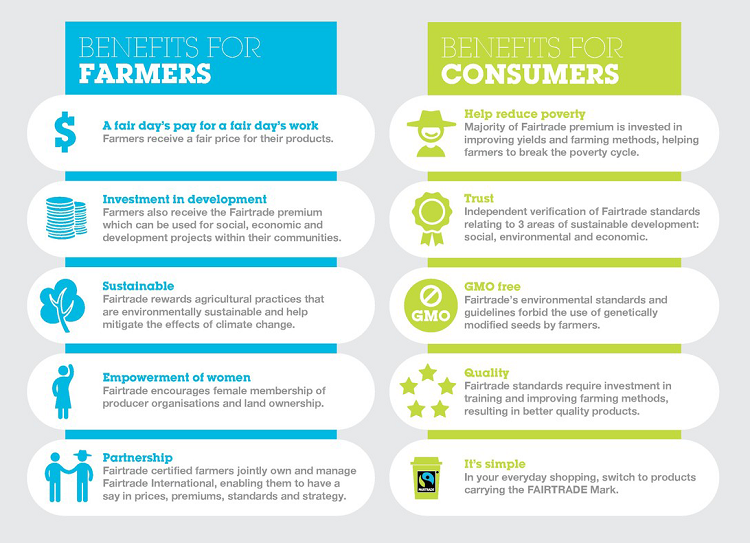
Scenario4: You are a young girl – a wife and mother of one year old son.You have just started your first job. Your earnings are guaranteedand the conditions in which you do assigned task leaveyourhealth at no risk. Your entire family is under medical care. On yourway home, you are thinking about your child's school and are happythat he will be able to learn inpeace.You can't wait the day when you and your husband will be advising himon after school activities – will it be English or maybevolleyball? All it takes it one decision that can change so much…
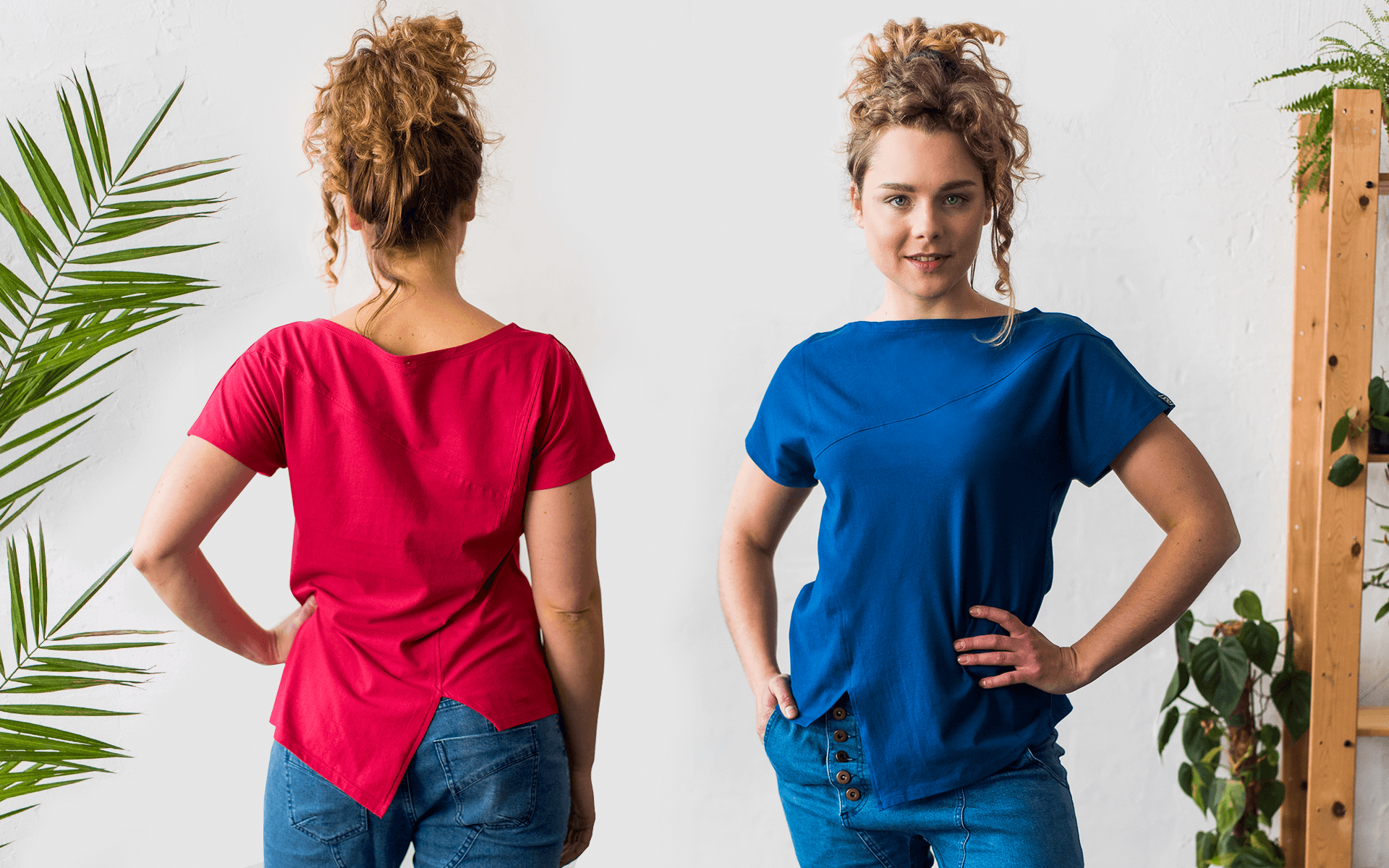
1 The minimum Fairtrade price for 1 kg of cotton in India is 0.44 euro (July 2020).
2 Child labour is still a serious issue on cotton platnations in countries such as India, Egypt, Uzbekistan and Tajikistan.
3 According to WHO 20000 people die each year due to accidental pesticides poisoning.
4 It takes up to 10,000 liters of water to produce 1 kg of raw cotton. It is estimated that cotton crops account for 1-6 of the world's fresh water consumption.
5 In developing countries, about 50% of all pesticides are used in cotton crops. This is harmful both to the environment and people exposed to these substances.
6 Fairtrade cotton currently comes from six countries: Senegal, Burkina Faso, Uganda, India, Tajikistan and Kyrgyzstan.
7 The only brand in Poland that produces Fairtrade certified clothing is Fairpants: https://fairpants.com/o-nas/.

Sustainable production

Responsible materials

Eco shipping

14 days for return